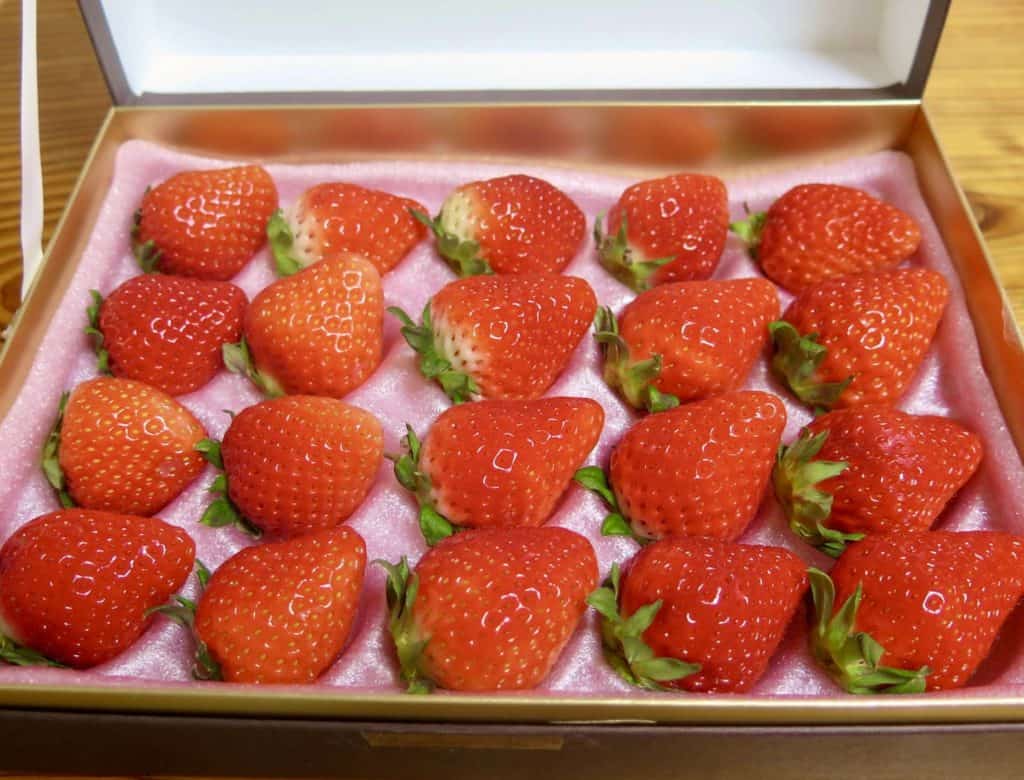I Still Cringe Thinking about the First One
The Japanese language has been a constant challenge since first moving to Japan decades ago. Over the years I have made mistakes on a daily basis, and no doubt will continue to do so. I hope that by sharing a few of my biggest, I might save you from the troubles I had.
Thinking that all polite words work both ways

Ever-cautious about courtesy thanks to my mother’s diligent teaching, one of the first words I learned in Japanese was the polite word itadakimasu, or rather, its simple verb form, itadaku, “to receive or accept.”
This word is commonly used before meals, but it is also used as a humble way to say thank you for a gift.
Great, another word down! The verb “itadaku” is a polite word for “receive/accept.” I make a mental note.
Fast forward 20 long years.
I am giving my Japanese teacher a gift, and I say with all humility of tone and manner, “Itadaite-kudasai,” which I am thinking is a very polite way to say, “Please accept my humble gift.”
Itadaku = polite word for “accept,” right?
After smiling and thanking me, my elderly teacher rubbed her arms and said, “You know, when you said “itadaite-kudasai” it made the hair on my arms stand on end, it’s so rude.”
What?! I’d been saying that for years! The horrors!
She explained that using itadaku in that way was, in effect, putting myself far above her.
“Here, lowly one, accept my magnanimous gift.”
Now I know.
Itadaku is only used in humbly receiving. It does not work both ways. It is not used when giving. Other verbs in Japanese work both ways, but not anything having to do with giving or receiving.
The subject of gifts brings me to my next faux pas.
Thinking that Japanese is anything at all like English
As an American, when giving someone a gift I would say something like, “I picked this out especially for you. I hope you like it!”
Or in Japan, the land where outrageously-priced fruit is given as gifts, “Here’s a $100 box of strawberries. I hope you like it!”
Just kidding. I wouldn’t really mention the price. But I did use to say, “I hope you like it.”

Wrong.
The correct Japanese approach when giving someone a $100 box of strawberries would be more like, “Here is a mediocre gift that I know is unworthy of your greatness or refined tastes. I know I am far beneath your lofty status, but I hope that you will forgive my impertinence and accept this gift from me.”
Thinking Japanese is straightforward
Years ago, I was setting up a bank account with the help of a Japanese friend. The teller had me fill out forms. So far, so good.
Then the teller asked me for my inkan.
What’s an inkan?

An inkan is a stamp, often made of bamboo, wood, or stone, and carved with the family name of the bearer. This stamp is to be registered at the city office and serves as an official “signature” on all legal documents in Japan.
At that time, I did not have an inkan.
Through my friend’s translation, I asked the teller, “Can I open a bank account without an inkan?”
The teller sucked air through his teeth and replied, “Muzukashii desu,” which I knew meant, “It’s difficult.”
Through my friend I asked, “I understand it’s difficult, but can it be done?”
Again, air was sucked through his teeth and the teller replied, “Muzukashii desu.”
Yet a third time I tried, determined to get my bank account opened that day. And for the third time I heard the word for “difficult,” muzukashii.
I looked inquiringly at my friend.
“‘Difficult’ means ‘no’.”
And that was the day I learned that saying a direct “no” is just not done.
Learning Japanese is difficult, and I expect to continue learning — and making embarrassing mistakes — for the rest of my life.
If you have questions about Japan or suggestions for articles, please add them in the comments. For more photos and information on Japan, follow me on instagram at: https://www.instagram.com/more_than_tokyo/




